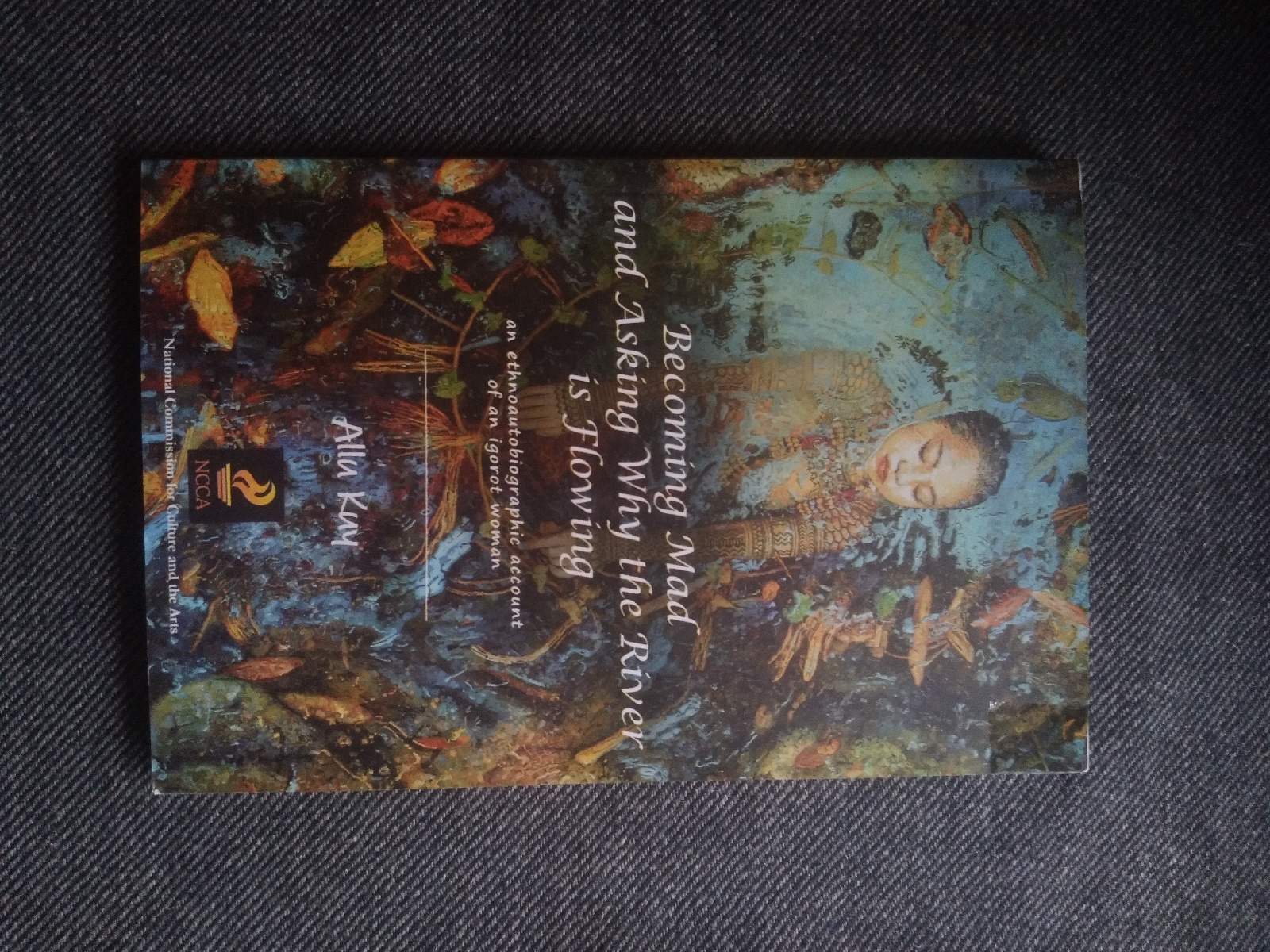So what you get is a brew of the traditional and the contemporary; eastern thoughts and western thoughts. Because it's an autobiography, the author meditates on what these are, what they mean, and how we might understand them better.
It's a deeply personal book so as a reader, expect your understanding of things to clash rather often with the author's understanding of things.
I think we need more books like this. It boldly meditates on culture, history, and religion beyond what's considered factual or established understanding.
📖 Becoming Mad and Asking Why the River is Flowing: An Ethnoautobiographic Account of an Igorot Woman
✏️ Allu Kuy
*First published in 2014. The second edition was published in 2025 through the National Commission for Culture and the Arts (NCCA).
Synopsis:
This thought-provoking ethnoautobiography offers an intimate account of three generations of Igorot women navigating the profound intersections of tradition, colonization, and personal identity. It explores subtle yet valuable Indigenous knowledge systems that can only be truly understood through an individual's lived experiences. The author traces her lineage and develops her wisdom through one of the longest surviving lines of shamanic practitioners in her community.
Through vivid folktales, dreams, and personal anecdotes, the story weaves a philosophical discourse that bridges Indigenous knowledge with contemporary thought. In an exploration of existential themes, it tackles issues of Indigeneity, social justice, spirituality, religions, colonization, and the complexities of reconciling modernity with ancestral beliefs.
The author challenges dominant narratives and dualistic perspectives while seeking to offer transformative solutions for understanding and embracing Indigenous ways of seeing in the modern world. At once personal and universal, this work is an essential contribution to decolonial studies, Indigenous philosophy, and women's studies. It is a call to action for scholars, communities, and individuals to reclaim their narratives and take control of their own histories. It paves the way for the empowerment of marginalized voices to articulate their experiences and insights, enriching the tapestry of the global discourse on decolonization.

